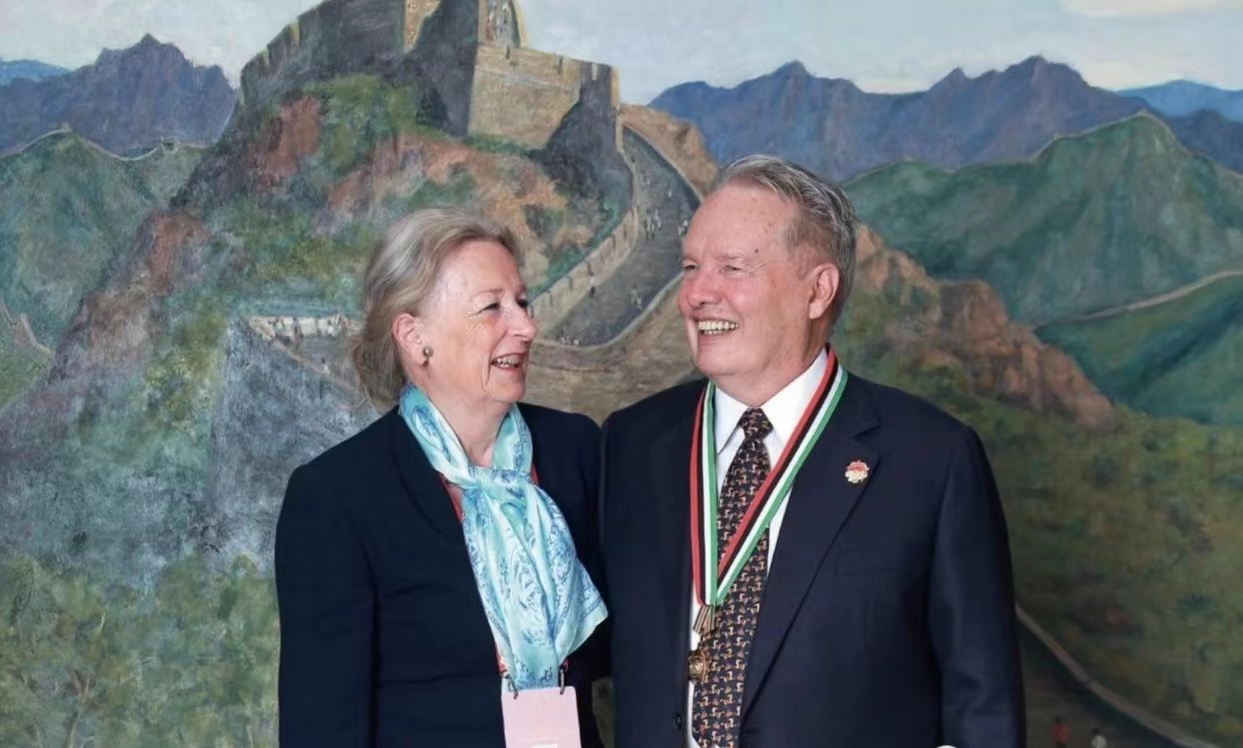
Francis Gregory Snyder?and?his?wife.?(PHOTO?by?International Talent Magazine)
By?Staff?Reporters
Professor Francis Gregory Snyder is an internationally recognized expert on food safety law, WTO law and EU law. He served as dean of the Law Department of the European University Institute and Honorary Professor of the London School of Economics and Political Science, and is now chair professor at School of Transnational Law, Peking University.
For more than 20 years, American/British Snyder has provided expertise to China's reform and modernization development. As a food safety expert of the Foreign Experts Advisory Committee, he has made suggestions on the revision of China's Food Safety Law in 2009, and reform of the food safety supervision system. In 2018, he received the Chinese Government Friendship Award for his dedicated service to food safety.
Looking back on his professional experience in China, Snyder recently shared his insights on China's food safety practices during a recent interview with us.
How did you learn about China's food safety laws?
Snyder: When I was a law student at Harvard, my tutor asked me to translate Chinese law into English and French. In 1992, when I was a visiting scholar at The University of Hong Kong, I took the opportunity to travel around China, giving lectures on food safety laws. In 1997, I went to Dongguan for an inspection, which gave me a deeper understanding of international trade. I think that food safety, WTO law, international trade law, etc. are like different streams coming together to form a river.
China is a model for other countries to follow in terms of food quality. China has green, organic, non-polluting food. In Europe and America, organic food is very expensive. I think China's system is something other countries should learn from, but not many people seem to realize this.
Have you noticed any changes in China over the past few decades?
Of course! It's incredible! The first time I came to Shenzhen was in 1997. It was no longer a small fishing village, but it was still not a metropolis. We had to go to the mayor's office to get a pass to visit a factory. The entrance to the mayor's office building was still muddy. Now, Shenzhen is a big city with a large population. It is very beautiful, with excellent buildings and roads. It is a really humane city.
China's approach to urban and rural problems is worth learning by other countries. China has always been very modest. Chinese people are excellent and hardworking, which is very important for China's future.
I think China is a country with a vast territory, a large population, an ancient culture, and world-famous food.?I often watch Chinese TV shows and movies in France, and I know that China has beautiful scenery and melodious music. I think this should be promoted. A lot of Europeans do not understand China. If they cannot come to China in person, it is especially important to understand China through other channels.
What can the world learn from China?
Many years ago, I did a project in Europe — What Can the World Learn from China? At that time, many students were confused. They didn't understand why they should learn from China. But reality tells us a different story. China has an ancient wisdom that is different from other countries. Europe is made up of many small countries, while China has been a unified country for a long time in history. Especially now that China is using its own ancient wisdom to handle international relations, I think it is worthy of learning by many countries. China is a country with a large population, and China's online medical system is also worth learning. Many patients can consult doctors online, which saves patients a lot of time.
This article includes contributions from International Talent Magazine.
The trio will conduct a series of experiments in fields such as life science, fluid physics, combustion science and materials science. Notably, this is the first time that fruit flies have been taken on a Chinese space mission as experimental subjects. What made scientists choose fruit flies? What experiment will they undergo?
